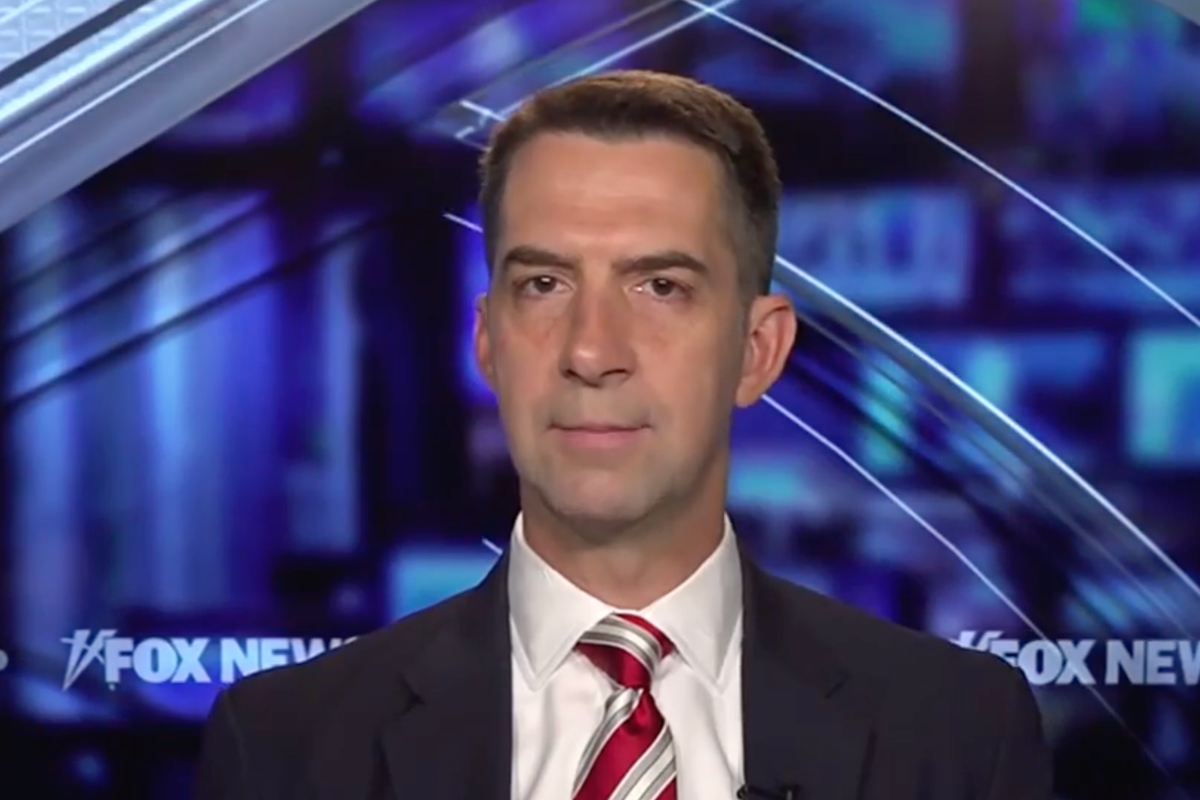Tensions are escalating in the United States as Senator Tom Cotton voices serious concerns about the potential threat of Iranian sleeper cells operating within the country. His warning comes at a time when the U.S. is already on high alert following recent military actions against Iranian nuclear facilities. This situation has ignited a heated debate about national security, immigration policies, and the delicate balance of power in the Middle East.
Cotton’s statements, made in light of increased threat levels and retaliation warnings from Iran, have amplified fears among Americans. The senator directly blames President Joe Biden’s administration for allegedly allowing a significant number of Iranian nationals into the U.S., raising questions about the vetting processes and potential risks to national security. With the backdrop of ongoing conflicts and cyber threats, the issue of sleeper cells has become a central point of concern for both policymakers and the public.
This article delves into the senator’s alarming statements, the context of rising terror alerts, and the broader implications for U.S. security. We will examine the details of Operation Midnight Hammer, the historical precedents of Iranian threats, and the responses from key political figures, providing a comprehensive overview of this developing situation.
Senator Cotton’s Warning on Iranian Sleeper Cells
Senate Intelligence Committee Chairman Tom Cotton has publicly stated that Americans are ‘right’ to be worried about the possibility of Iranian sleeper cells operating within the United States. Speaking on Fox News, Cotton addressed concerns about Iranian nationals entering the country, pointing to what he described as President Biden’s ‘wide-open border policy’ over the past four years.
Cotton emphasized Iran’s long history of targeting America, citing past terrorist acts and assassination attempts. He stated,
“Joe Biden had a wide-open border policy for four years. We know that terrorists tried to enter our country. Iran has a long history of terrorizing America, going back 46 years to include here in the United States.”
These remarks coincide with heightened tensions following Operation Midnight Hammer and retaliation threats from Iran, intensifying the debate over U.S. border security and immigration policies.
Operation Midnight Hammer and Rising Terror Alerts
President Trump recently authorized Operation Midnight Hammer, which involved bombing three Iranian sites allegedly used for uranium enrichment. This action, framed as a response to Iran’s pursuit of nuclear weapons, has led to increased threat levels within the U.S. The National Terrorism Advisory System issued a bulletin cautioning that a ‘heightened threat environment’ now exists.
The bulletin warns of potential cyber attacks and possible acts of violence, cautioning that:
“low-level cyber attacks against U.S. networks by pro-Iranian hacktivists are likely, and cyber actors affiliated with the Iranian government may conduct attacks against U.S. networks.”
This operation and subsequent warnings have heightened anxiety among Americans and increased scrutiny of national security measures.
Historical Context of Iranian Threats
Senator Cotton stressed that Iran’s history of aggression predates recent events, highlighting a 46-year pattern of terrorist activities against the U.S. He referenced past assassination attempts and attacks, arguing that Iran’s behavior is not a new development triggered solely by Trump’s actions. He also commented,
“They tried to assassinate Donald Trump last year. Someone finally answered the call to Iran’s fatwa against Salman Rushdie a few years back and brutally stabbed him.”
This historical context is crucial for understanding the depth of concern among security officials and policymakers. The senator’s remarks serve to remind the public and government of Iran’s consistent hostility towards the United States.
Administration’s Response and Countermeasures
Vice President JD Vance echoed Senator Cotton’s concerns, criticizing the Biden administration for allegedly allowing “crazy people” into the country. Vance pledged to take all necessary measures to ensure the safety of Americans. Homeland Security Secretary Kristi Noem also issued a statement emphasizing the need to keep the nation safe and informed during these tense times. She stated,
“It is our duty to keep the nation safe and informed, especially during times of conflict.”
Noem’s department is actively monitoring potential threats and coordinating with law enforcement to disrupt any possible Iranian-backed plots within the U.S., as the bulletin does outline law enforcement has disrupted multiple potentially lethal Iranian-backed plots in the United States since 2020.
Understanding Sleeper Cells and Their Potential Impact
Sleeper cells, comprised of undercover agents or terrorists, can pose a significant threat to national security. These individuals remain inactive, blending into society, until they receive orders to carry out specific missions. The potential for such cells to exist within the U.S. raises alarms, especially given the current geopolitical climate.
The ongoing conflict between Israel and Iran further exacerbates these concerns. The National Terrorism Advisory System bulletin warns that “the likelihood of violent extremists in the homeland independently mobilizing to violence in response to the conflict would likely increase if Iranian leadership issued a religious ruling calling for retaliatory violence against the United States.”
Worldwide Caution Alert for American Travelers
In light of these escalating tensions, a worldwide caution alert has been issued for American travelers overseas. The alert advises U.S. citizens to exercise heightened vigilance and be aware of their surroundings due to the increased risk of potential threats. This measure underscores the seriousness of the situation and the need for Americans to remain vigilant both at home and abroad.
Conclusion: Vigilance and Preparedness in Uncertain Times
The concerns raised by Senator Tom Cotton regarding Iranian sleeper cells, coupled with rising terror alerts and geopolitical tensions, paint a concerning picture for the United States. The potential for both cyber and physical attacks necessitates increased vigilance, robust security measures, and a comprehensive approach to addressing potential threats.
As the U.S. navigates this complex landscape, it is crucial for policymakers, law enforcement, and the public to remain informed, prepared, and proactive in safeguarding national security. The coming weeks and months will be critical in determining the extent to which these threats materialize and the effectiveness of measures taken to mitigate them. With global tensions continuing to rise, the need for unwavering vigilance has never been more critical.

Leave a Reply